Conducting Magic Around The World
An interview with CineConcerts founder Justin Freer
By Jason LeBlanc
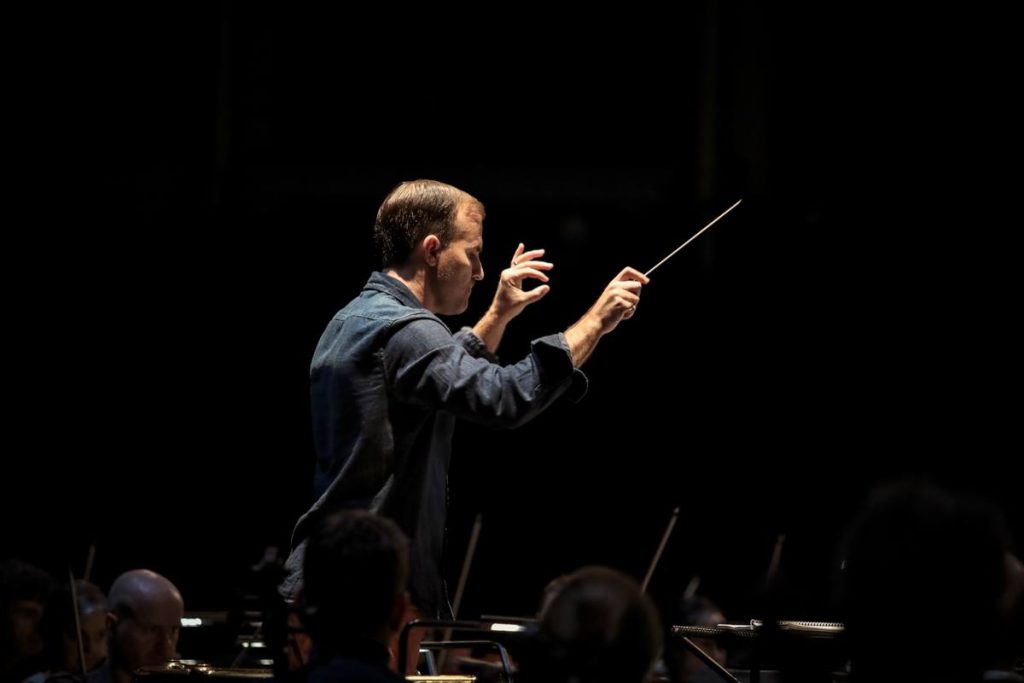
Justin Freer had already established quite a resume as a composer and conductor before beginning to trot the globe conducting scores such as Titanic and Lord of the Rings Live To Picture, which led to eventually founding CineConcerts, a company dedicated to the preservation and concert presentation of film, TV and media music set to picture.
In October of 2018, Justin conducted the Royal Philharmonic Orchestra and the English Chamber Choir for three performances of Harry Potter and the Prisoner of Azkaban at Royal Albert Hall in London, England, and CineConcerts invited me to attend rehearsal and interview Justin between two of the performances.
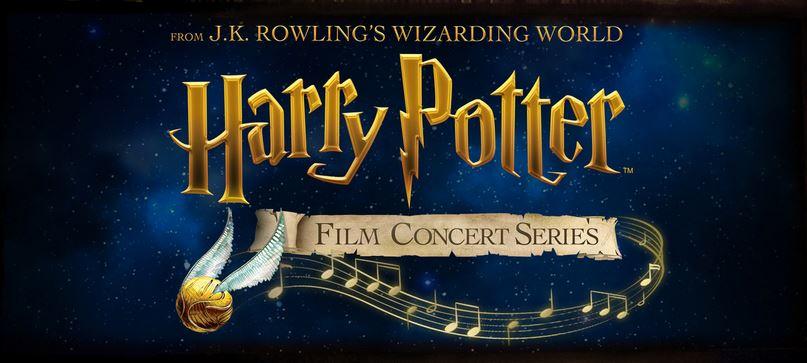
Jason LeBlanc: Thanks for letting me watch rehearsals for Harry Potter and the Prisoner of Azkaban yesterday, it was fascinating to see the process of how a conductor and orchestra prepare a concert for the audience. And what a score to prepare!
Justin Freer: I really do think it’s one of his greatest works… I mean, we all have our favorites, or the ones we grew up with, or the ones that remind us of that day with our friends in the summertime… it’s amazing how many of us grew up with John’s music.
JL: For me, the first soundtrack I ever bought was a John Williams soundtrack – it was Star Wars. I became a fan of the films first, and I was like “this music in this movie is really great”, and I didn’t ever think you could buy it on CD, and then I found out, and then my whole life was changed.
JF: Is that still one of your favorites? Well, what is your favorite, I’m curious?
JL: Tough question! I usually go with Hook and Empire Strikes Back as kind of tied at the top.
JF: Empire is incredible.
JL: Yeah.
JF: It’s really incredible.
JL: I love it’s operatic epicness…. Of course there’s something quaint about how simple Star Wars is that I kind of appreciate more in some ways…
JF: Especially after you listen to Empire, right?
JL: Definitely, because it seems simple in comparison, but it’s so perfect for the film, it fits it like a glove.
JF: It’s incredible, absolutely. What are some of your other favorite scores?
JL: It’s boring, but the original Star Wars trilogy, the Indiana Jones trilogy, E.T., Close Encounters…. They’re everyone’s favorites, but they’re just incredible. Temple of Doom always blows me away.
JF: I love how campy that film is!
JL: From “Anything Goes”, they’re telling you anything is gonna go in this movie, and they just keep one-upping the whole movie, it’s just so amazing, and it’s Harrison Ford’s best performance.
JF: It’s a pretty good one, until he somehow survived the nuclear weapon in the refrigerator.
JL: Yea, we just pretend that one doesn’t exist.
JF: Still a great score though – “Mutt’s Theme” is so fun! He goes through “The Raiders March” in nine different keys in the span of ten bars, it’s pretty amazing.
JL: And the little end credits re-do of the end of “The Raiders March” he came up with is fun too. But yes, there’s so many “bad films yet good scores” in every composer’s repertoire…
JF: It’s part of the fun!
JL: Hook has just always been special to me somehow, and I didn’t even see the movie as a young kid or anything, but I just unabashedly love the movie too – I know its cheesy, but I can just put it on and enjoy it any time, maybe mostly because I’m listening to the music. And then in recent times, War Horse is I think one of his best scores.
JF: It’s really beautiful.
JL: It came out of nowhere, and the film isn’t particularly that great and I don’t know how he drew his inspiration, but he came up with these themes that are just… and Lincoln too, the themes are incredible, it’s some of his best themes, and you’re just like “wow!”
JF: I love how Chris Martin plays those trumpet solos. He’s one of the great musicians in all of the world – not just the brass world. Such a beautiful sound. But you’re right about Lincoln, and Amistad is up there too. When Steven Spielberg gets really serious in his work, it’s incredible to see what that does to transform John’s approach to writing music. We all know that famous story about Schindler’s List and how he felt when he came out of that first screening, but I think that’s evocative and reflective at the same time of their relationship, how they feed off of one another, in every possible emotional way, psychological way, physiological way – it’s a very physical experience…
JL: They’ve been such good positives on each other’s careers, there’s nothing else that comes close to the synergy that they came up with.
JF: It will be in the storybooks for the ages, and I don’t know how you feel about Lost In Space, but that has some of my favorite orchestrations.
JL: I haven’t gotten really deep into it Lost In Space, I’ll have to check it out more.
JF: Do you have the big collection?
JL: The La-La Land Records one, of course!
JF: That’s a really good one. Since you mention Empire, I feel like no matter how many times I listen to The Empire Strikes Back, I hear something different. And it might be something as simple as what the piccolo is doing against the glock with the two flutes voiced above it, something that might only exist for two seconds, but there’s so much color in that score, it’s unreal.
JL: Speaking of color, Azkaban is crazy colorful!
JF: That’s one of the most challenging things on the podium with this one, getting your brain out of X and into Y and then into Z. He covers hundreds of years of music history in the course of 2 and a half hours and it’s all so well done!
JL: It seems at first like it’s all these completely different elements, and then it all starts coming together. You go from the waltz for Aunt Marge to the eerie playground landscape to the crazy Knight Bus music to a different kind of eerie for the Dementors, and it’s all different, then once the kind of medieval soundscape sets in, it kind of binds it all together.
JF: It’s amazing.
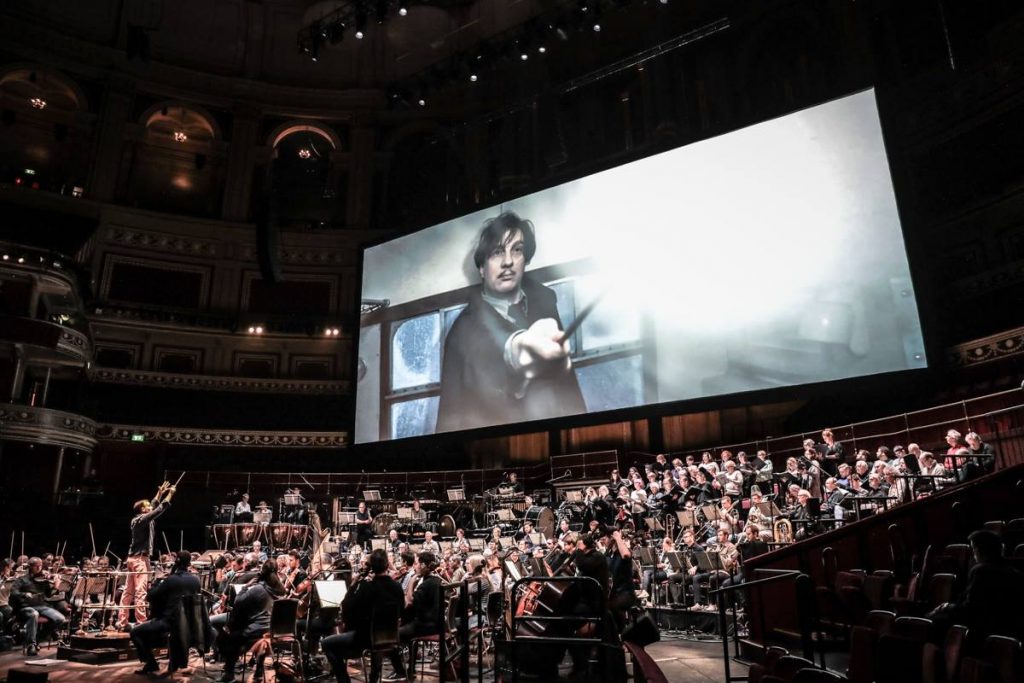
JL: What challenges does Prisoner of Azkaban have compared to Sorcerer’s Stone and Chamber of Secrets, because Stone and Chamber are so similar to each other as well as more classically orchestral…
JF: Well, I think the constant among the three Potter scores by John is the amount of tempo changes. Not all films are like that, but because there are so many varying speeds of what’s happening on film, the same thing follows with the music. So that’s certainly shared amongst the three films, along with the amount of physicality and concentration that goes into pulling these off.
What makes this score more challenging than the first two are things revolving around style and color, and being able to shift the orchestra very quickly from early renaissance to traditional John Williams – like with “Saving Buckbeak” for example – and then shifting right away to the really eerie chamber trio in the string section with ponticello tremolo playing. And then after that, you have to have the choir sing as if they’re in a church! So all of that very closely juxtaposed to one another is very difficult psychologically and emotionally from the podium, and it certainly is for the musicians, and it’s so rewarding at the end of these shows.
JL: I can only imagine!
JF: The synchronization on this one is another issue. And I can’t speak for all my colleagues, but most of them that I know prefer to use click track on these shows, and I do everything without click track. So we have an added element of suspense perhaps on stage, but I think ultimately it’s much more musical and still you can be just as accurate.
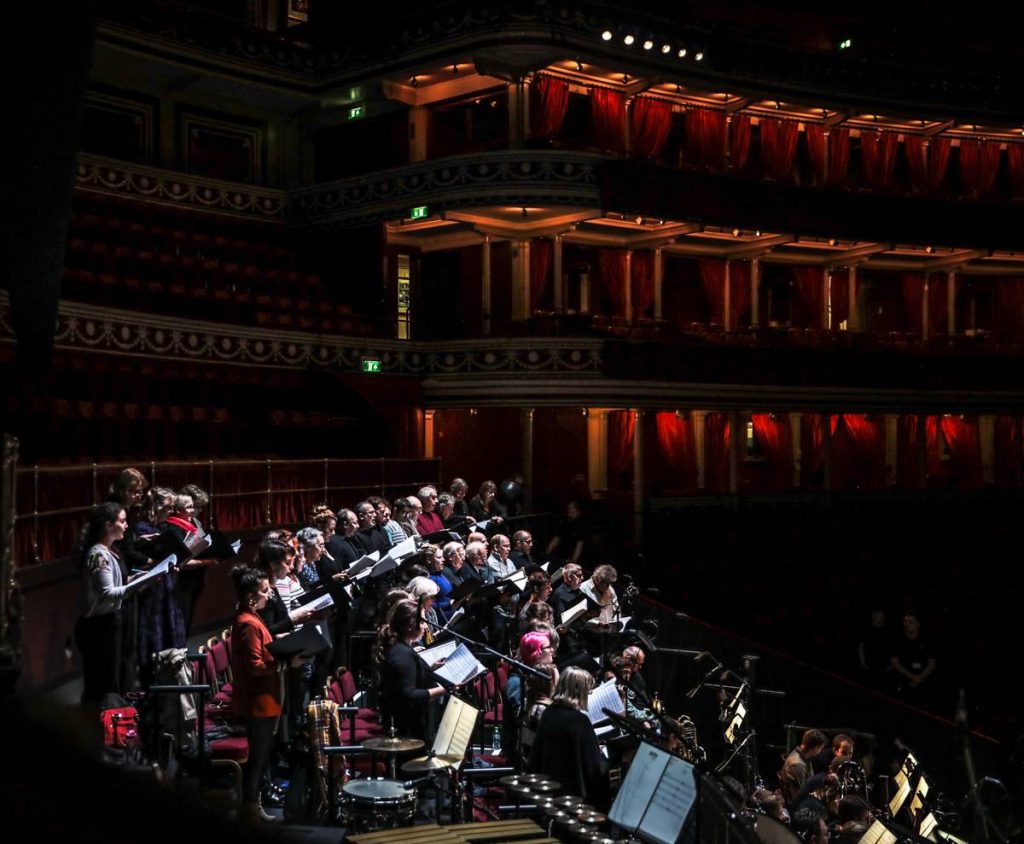
JL: The lip sync for Double Trouble was spot-on at rehearsal yesterday – first take, it was great! The tick-tock noise that comes in when they go back in time, does that add a different challenge to conducting through that?
JF: It does, because that’s coming in on a pre-recorded track. That one had a lot of variables, especially in a hall as big as Royal Albert Hall, where there’s a delay from the P.A. at the front to what they’re hearing at the back… if you’re not on with the orchestra right where the visuals are, they have no chance in the back of feeling like everything’s together. In that particular cue, a challenge for the orchestra is not listening in to the tick-tock that they hear in the house, because that’s a delayed sound versus the one that I have to keep them to. That’s easily one of the most challenging synchronization pieces in the film.
I have a little audio monitor on stage, but I probably have 2-3% in my monitor compared to most conductors because I don’t like to be distracted from what I’m doing here with the orchestra. And when I know that what I’m doing is correct, then what’s coming from the monitor doesn’t really matter. You can hear the dialogue and effects in the hall, so…
JL: And you have faith in your team running the mixing boards that everything’s going to come out right.
JF: Oh yeah, we travel with the same 3-4 creative teams everywhere we go, for the most part, so we quality-control it with conductors, sound engineers, and production supervisors who are trained in these shows. So no matter which orchestra we work with, having the same production team adds a little bit of quality control.
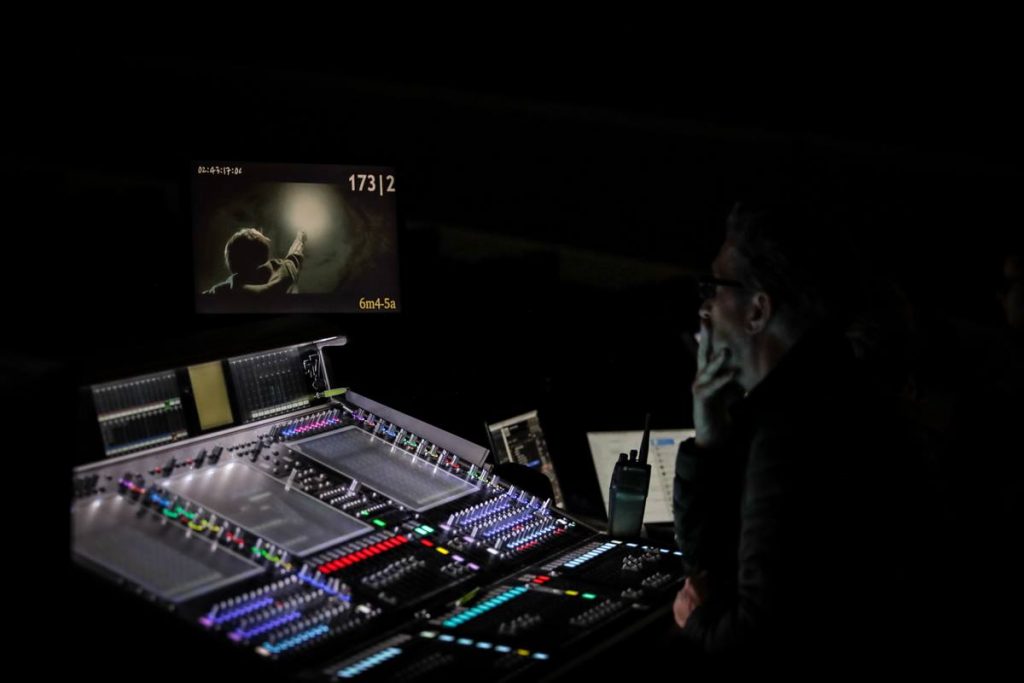
JL: How much time do you get with each new orchestra between when you land and when you have to put on a show?
JF: It’s usually about 5 hours split among 2 rehearsals.
JL: Wow!
That’s after the two and a half to three weeks they had to learn the music, but it’s not apples to apples. It’s very much apples to insert-your-fruit-of-choice. But it’s not easy, even as well-prepared as the books are. And the errata list is making sure the changes are where they need to be so you don’t have to stop in the middle of rehearsal and say, “Oh, I think that might be an F#,” or, “Oh, there’s a misprint”… we try to avoid that as much as we can. Even with all those things taken care of before we arrive… *laughing* it’s two and a half hours of music you have to learn!
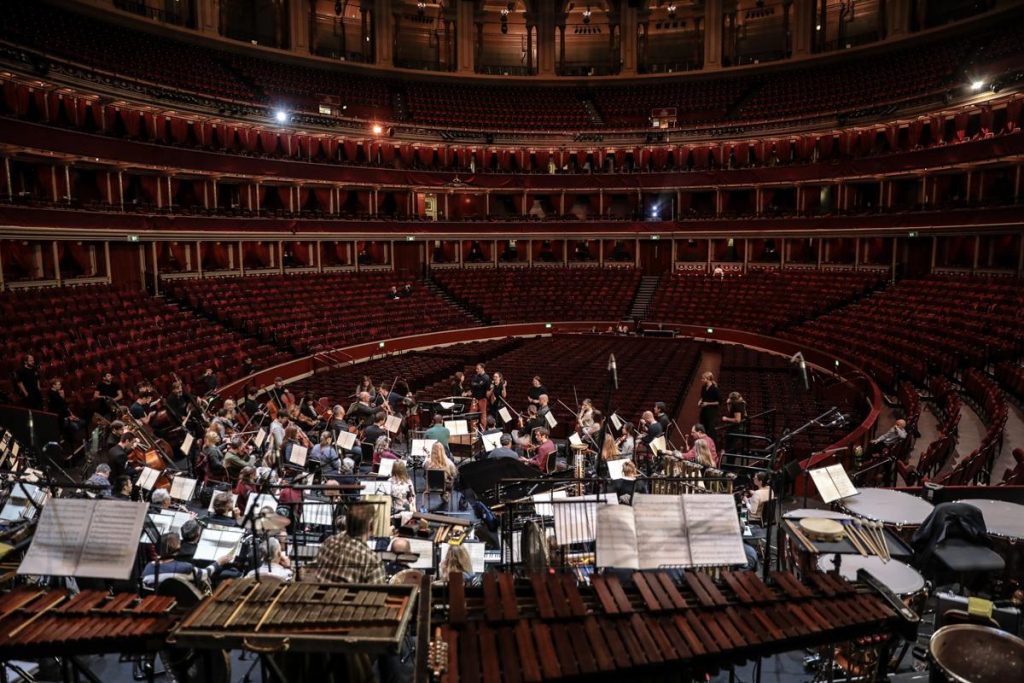
JL: Is there still adjustments that you make in one venue that you didn’t do in the last because of something with those specific musicians?
JF: Always. Every orchestra has a different identity, a different color, a different sound. Every hall is different. The acoustical challenges are never the same, even when you come back to the same hall. Maybe the score is a little different and you have a different issue to deal with stage left or stage right, or a sound effect gets in the way of that note, where the same sound effect didn’t get in the way of that same note because that note didn’t exist in the first score, you know?
It’s a constantly evolving set of variables… and if we were just taking just Harry Potter and the Prisoner of Azkaban on the road, and we were going in tractor trailers from city to city with a touring orchestra, even a score as magnificent as this one might feel a little bit, dare I say repetitive, only because it’s with the same folks day in and day out. But when you get to hit the reset button and work with a new orchestra with the same score, at least for me the feeling is like you’re being reborn and you get to do it all over again – and it’s just as challenging! I’d hoped that these would get easier as we go on, but they don’t! *laughing*
JL: You’ve done so many!
JF: I gotta tell you, this is the third performance tonight of three in two days, and I still feel like it’s going to be just as challenging, if not more, because it’s the one where we’re all gonna be struggling to get those last notes at the end credits. But it’s just great.
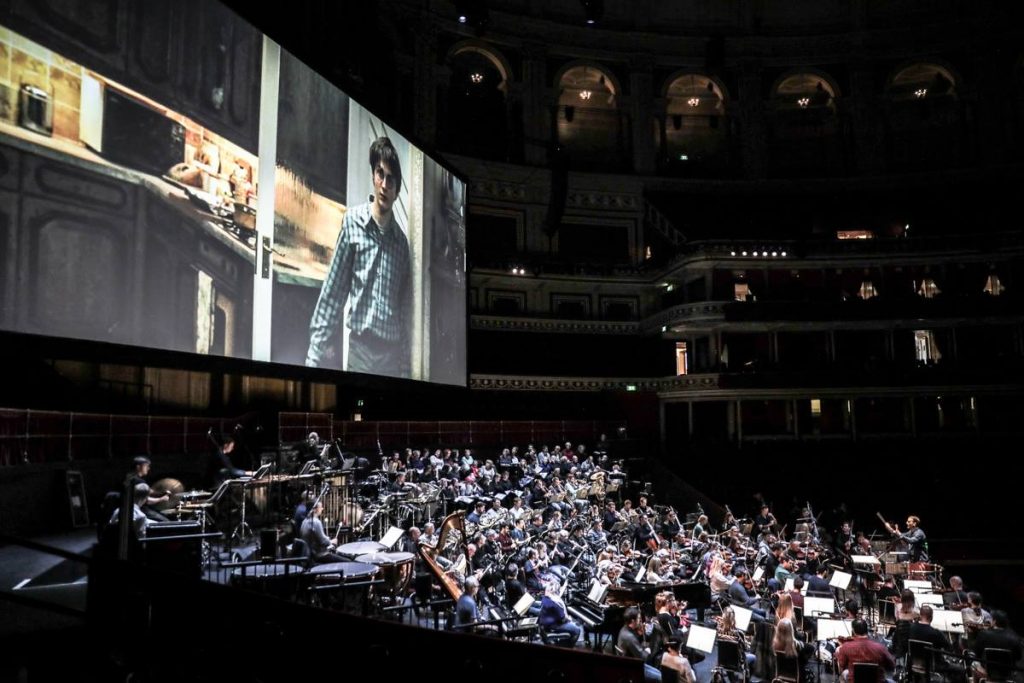
JL: When did you become aware of Live to Projection concerts?
JF: Well, CineConcerts is now nearly six years old, and we started with Gladiator, that was our launching with Hans [Zimmer]. Before that it really goes back to when I was a kid. Not unlike you, Star Wars was part of my introduction to John. It wasn’t the entire soundtrack, but it was track 15 of By Request: The Best of John Williams and the Boston Pops Orchestra, you know, from the 80’s. So I was introduced to John’s music simultaneously with Gustav Mahler’s, and the Chicago Symphony performing it. So my ears were just on overload that day – my grandfather, when I was very young, bought these albums for me… and I knew instantly, I fell in love with film music and concert music at the same time.
And so I’ve always had a passion for John’s music, since I was a young boy, and film music in general. I learned to appreciate it much more when I was lucky enough to have spent time with Jerry Goldsmith before he passed away, and learning from him, and really appreciating the craft more and more. And as we all know he was a real master of the technique…
JL: Oh yea!
JF: I mean, incredible right? So I have always loved his craft, and in my young adult years always hoped that we could do more of these, but I knew then in my early 20s that the technology really wasn’t there. I mean, John Goberman was doing some things successfully with Casablanca, and there was Looney Tunes out there, and then The Lord of the Rings came – which was for many years when I was conducting it, still done on film!
JL: I didn’t realize that!
JF: We’re carrying around 80 lbs. of film around the world, throwing it through projectors, literally having to cut film backstage in the Sydney Opera House, because the projectors would destroy the film. So the technology has certainly gotten better and I’ve always wanted to be involved somehow. I hope in some small humble way, we’re helping to further the craft.
JL: So you were conducting Lord of the Rings long before CineConcerts right?
JF: Yes.
JL: How did that opportunity come about?
JF: When I once worked at William Morris, when I was still in the agenting sphere (which is a kind of bizarre break in my life from composition), someone who I trained ended up going over to the agency that was responsible for The Lord of the Rings. So I made an introduction to Ludwig Wicki, and he and I now are very, very close friends. So Ludwig and I did a substantial amount of film concerts before CineConcerts was started, and from there we just kind of ping-ponged with Gladiator, The Godfather, Breakfast at Tiffany’s, Harry Potter…
JL: How did you decide you wanted to have your own company that would do these, rather than just be hired by other companies?
JF: I guess it was the composer in me, because I learned very young that what made it fun to be involved at that stage of the craft was, you know, creating. So perhaps that was part of it, the penchant or yearning for wanting to be involved with these projects from the very beginning. And some of them are incredibly challenging to put together.. and they’re fun!
Walking off the podium for Azkaban knowing that we just journeyed through so much music history, it reminds me of just how infinitesimally small our contributions really are in the context of music history. If we can have just a little tiny part of it… and in the case of the Harry Potter films, finding a way to connect with the young person, the young musician and finding a way to inspire them to perhaps become a musician, or practice more, or become a filmmaker, an actor, an artist, whatever it is. Because we all have stories like that, where we heard something, we saw something, we did something that turned the light bulb on for us, and we went a different way.
JL: So then, is the “fun aspect” something that helps you choose which films you might want to add to your repertoire? “I would have fun conducting this one, so I’ll seek out and try to license it”?
JF: Sure – that’s one of the first things! It’s like, “What do I love?” I won’t do any of these unless I really do love the score, and Breakfast at Tiffany’s is a great example. It hasn’t been incredibly commercially successful, but it’s one of Hank [Mancini]’s greatest scores.
JL: Absolutely!
JF: It’s incredible!
JL: And everyone knows “Moon River”!
It’s incredible, and being able to have a live guitar accompanying Audrey on screen is just tickling. I definitely have to love the score first, but as more and more of these enter the marketplace it becomes more important that the film is also strong. There are a lot of amazing examples where the film is not so strong and the score is incredible, absolutely incredible, but might not be right for the space. And vice versa – I mean, *laughing* I’ll watch Top Gun any day of the week, but there’s no way it would work in a symphony hall.
JL: Or something like Hook which may be an incredible score, but would be hard to sell tickets.
JF: It would, I think so, yea. But amazing, that music. That it came out of the same brain as… what would be one of the furthest from that, maybe Memoirs of a Geisha?
JL: Or just doing Jurassic Park and Schindler’s List back to back, you know?
JF: There you go. There’s a great story: When Jerry was still around, he was interviewed once by someone who was asking about both his career and a little bit of John’s career, talking about the technique of writing for superheroes or writing for love stories and themes. And Jerry was asked his opinion of John, and of course he was just unabashedly positive – they were close and both giants in their craft, but for some reason Jerry was asked if John perhaps had done it all already. And Jerry’s response was very poignantly, “Go listen to Schindler’s List, and then come back.” And this is from Jerry Goldsmith who of course grew up in a Jewish family and had such an appreciation for that culture and that music, and to hear Jerry speak so positively about John’s music to Schindler’s List put a huge smile on my face.
JL: How did you meet Jerry Goldsmith?
JF: At UCLA, when I was still at school – he was the one who convinced me to come back for my graduate work. I had been planning on taking a break, I really needed a break from music, and I spent about a year and a half training with a family friend who was a Navy SEALs team commander to try to get into SEALs training in BUD/S and then come back and finish music. And Jerry got wind that I wasn’t coming back, and we started talking and he convinced me to come back. When he said, “Come get your other degree and I’ll try to help you the best I can,” it was a no-brainer. It was a tough call to tell then-Chief Getka, “Oh, sorry…” *laughs*
JL: Well, it worked out for you!
JF: Even just the year and a half before Jerry got a little too sick to continue his craft, he was just one of the most humble men. And you hear that not only in his music but also in John’s music all over the place, how humble these men really are.
JL: Super humble.
JF: And I love being able to hear that in their music and feel that with our emotions when we respond to their stuff.
JL: It’s interesting, I feel like Williams never thinks anything is really finished, he always thinks he can improve it, can do better. That’s why you get, 30 years later, “Han Solo and the Princess” totally redone by him, just because he wanted to.
JF: It’s admirable, I mean, if any of us can have one tenth of what he has at his age – at any age! – for the rest of the world would be amazing. But he’s a giant among giants, and I think because of how many people have grown up with his music and have found themselves maturing in so many ways and levels of their lives, that John Williams is the soundtrack of so many people’s entire life span. And that’s pretty incredible.
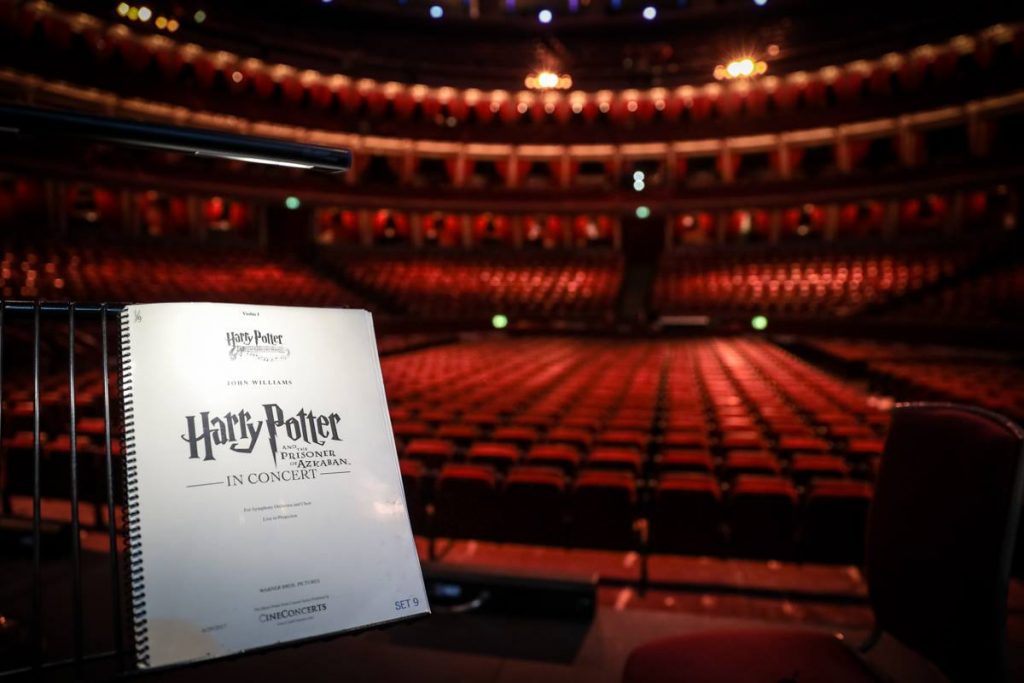
For more information about CineConcerts’ ongoing concerts around the world, you can visit their official website and follow CineConcerts on social media:
https://www.facebook.com/CineConcerts/
https://twitter.com/CineConcertsLLC
https://www.instagram.com/cineconcerts/
https://www.linkedin.com/company/cineconcerts
All photos courtesy of Christie Goodwin, originally posted to Facebook at https://www.facebook.com/CineConcerts/posts/2238340456455229
HARRY POTTER characters, names and related indicia are © & ™ WBEI. WIZARDING WORLD trademark and logo © & ™ WBEI. Publishing Rights © JKR. (s18)
Special Thanks to Marcy LeBlanc
